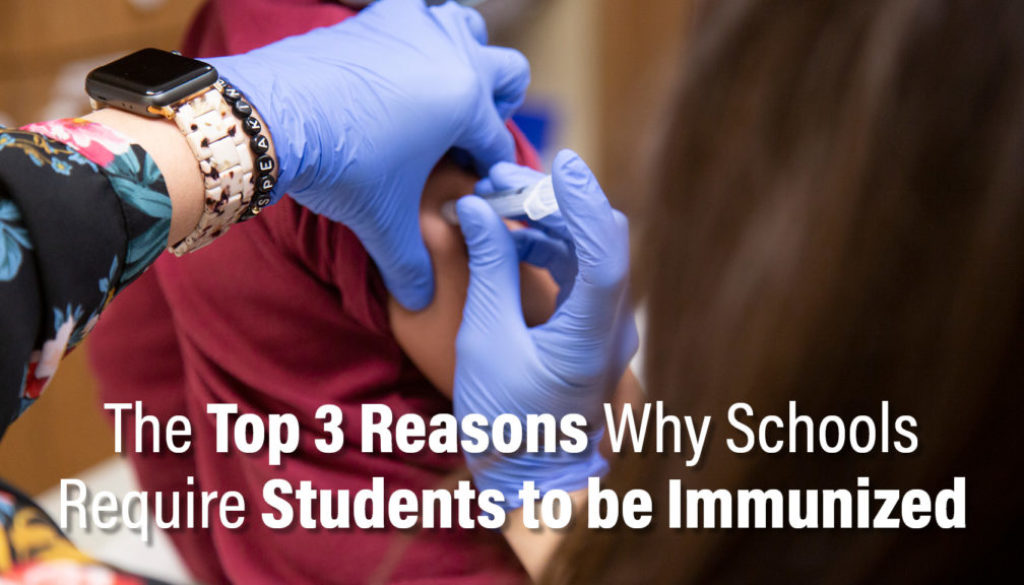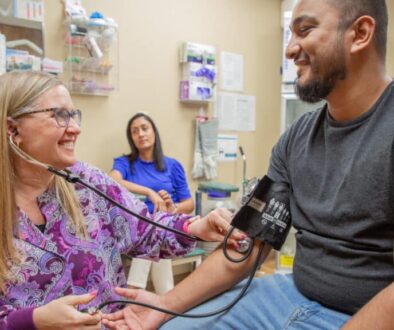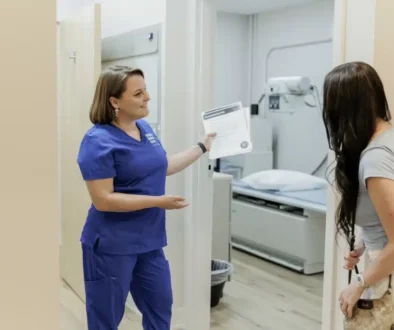Top 3 Reasons Why Schools Require Students To Be Immunized
Vaccinations. The word has certainly taken on a new social and cultural significance in 2021. However, vaccines (also known as immunizations) have been around for many decades, and have been part of a recommended healthy lifestyle for just as long. Crippling diseases such as polio have been rendered practically nonexistent because of the medical breakthroughs immunizations provide.
Shortly after the influenza outbreak in the early 1920s, U.S. schools began requiring vaccinations for all students. While exceptions can be made to these requirements in most states on the grounds of medical risks, religious beliefs, or philosophical opinions, the majority of children are vaccinated. Here are the top 3 reasons why schools require vaccines.
1. Preventing Outbreaks
The most obvious reason to be vaccinated for a disease is to avoid contracting it. When students miss school due to illness, their studies can lag and they often fall behind. If an extremely contagious or deadly virus erupted in a school, the entire school might shut down for a time, and many people could become unhealthy. In the interest of preserving learning timelines, and the health of the students, schools hold fast to vaccine requirements to prevent the outbreak of certain illnesses.
2. Preserving Herd Immunity
A lesser known reason that vaccines are important for the greater public, not just for school administrations, is due to the concept of herd immunity. Herd immunity is the generalistic protection of a population from a disease due to a sufficient number of individuals possessing antibodies (whether by previous infection and recovery, or by immunization). Vaccinations ensure that a large portion of the population maintains immunity to certain contagious diseases, thus reducing their risk of detriment to the population as a whole. If immunizations were to cease completely, the number of immune individuals would plummet. And then, if the disease were to re-emerge later, an outbreak of substantial proportions could wreak havoc on the population due to a high number of vulnerable candidates.
3. Immunizations Are Less Expensive
Believe it or not, the technology that vaccines require for their development, distribution, and storage, is less costly than the alternative to them. In the case of a major outbreak, the medical system as well as individuals would absorb enormous healthcare costs. The cost of treating severely ill patients, coupled with the opportunity cost of their time spent immobilized and recovering, poses a serious financial threat.
Richfield Medical Group Can Help
Whether you are looking for more information regarding the availability, necessity, and administration of immunizations, or you are seeking a trusted primary healthcare professional for your family, Richfield Medical Group can help. Our doctors prioritize the health of you and your loved ones, and our approachable, understanding staff can help point you in the right direction for the treatment of your child. Contact us today at https://richfieldmedicalgroup.com/ to schedule your child for a hassle-free visit.







